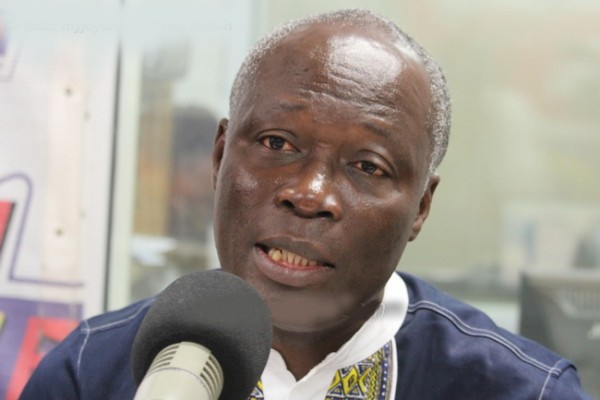A former Minister for Local Government, Decentralization & Rural Development, Edwin Nii Lante Vanderpuye, has stated emphatically that the Electoral Commission simply failed to prepare adequately for this year’s district-level elections and cannot be excused for the lapses.
Speaking on JoyNews’ PM Express on Tuesday, December 19, the Ododiodio MP insisted that for an exercise that the EC had about two years to plan before executing it, such lapses cannot be pardoned.
Although the election of district and unit committee members on Tuesday was largely peaceful across the country except for the usual low turnout, the Commission postponed the election in some electoral areas in some regions blaming it on technical challenges such as the shortage of ballot papers.
The EC, while apologizing for the lapses, said some of its printers had not delivered on the contract as expected, compelling it to shift the elections to Thursday, December 22, for electoral areas that were unable to vote.
“I will not give any excuses for the EC’s lack of preparedness. The EC was inefficient and ineffective in this particular election. We must call a spade a spade.
The EC has two years to prepare for district-level elections because they happen in between the major national elections. After the 2020 election, the EC knew that they would have district-level elections this year.”
According to him, this election should have happened as far back as August but was pushed to September before a new date was set in December.
He thus wondered why after several postponements and a two-year preparation the EC would fail to deliver a smooth process.
“In all these instances and times, what has been the preparation towards this district-level election?” he quizzed.
Should we continue to have an EC that after national elections will go to sleep and then will wake up from slumber, come and conduct district-level elections within three months, go to sleep again and wake up six months into national elections in 2024 and come and mess up again?.”
He reminded the EC of its mandate to prepare adequately for any election including the District-level election which is crucial for an effective local governance system.
I think we should be able to call the EC out, and tell the EC that it is their duty and mandate to prepare sufficiently, adequately and well for every election in this country. This has been the character of the EC as far as the district-level elections are concerned. They’ve not shown the right attitude, mindset and preparation towards the district-level election” he noted.
Against this backdrop, he charged the Commission to prepare adequately for the national elections in 2024.
“As such, immediately after this district-level elections, all the things that we have seen now, they should start preparing towards those things so that in 2024 in the major elections, we will not have these hiccups that we’ve witnessed in the district-level elections” he cautioned.
He said the EC’s explanation that some of its printers failed to deliver on time is untenable because they had adequate time to avoid such a situation.
“The EC knew its timetable, so the EC should have selected the contractors, prepared itself, and given them adequate time to print, and deliver before the elections. You don’t give a contract maybe three or four days or a week to an election.
“How do you even do checks and due diligence to make sure the printing has been good, no mistakes and nothing has happened? You must prepare, and that’s why they have a whole year to prepare for district-level elections.
And so they can’t come today and tell us we have hiccups because our contractors could not deliver on time. It means the EC itself did not prepare enough to give their contractors adequate time to be able to print and execute the mandate that was given to them” he argued.
The history of District-level elections
District assembly elections have witnessed low voter turnout since they started in 1988. It is therefore not surprising that this year was no different.
District-level elections are one of the most important polls for participatory democracy in Ghana.
It can be traced back to the colonial era when local authorities were created for specific geographical jurisdictions that became part of the indirect rule system of governance introduced by the British in 1878.
A 2021 survey by the Centre for Democratic Development, CDD-Ghana on citizens’ support for the election of Metropolitan, Municipal, and District Chief Executives, showed that more than seven in 10 Ghanaians (76%) favour the election of MMDCEs on partisan basis.
When this happens, district-level elections will also be along partisan lines
But as it stands now, Article 55(3) of the 1992 constitution, which is an entrenched clause, prohibits political parties from taking part in local-level elections.
A planned referendum in 2019 to amend that portion of the constitution was aborted. Many electorates who spoke to me believe the election of MMDCEs will automatically whip up interest in local-level elections.
The voter turnout in 1988 for the first district election was 59.3%, but since then, it has reduced substantially. In 1994, voter turnout was 29.3%; in 1998, 41.6%; in 2002, 33.1%, in 2006, 39.3%; in 2010, 35.3%; it was 35.9% in 2015, and in the last district-level election in 2019, the voter turnout was 33.6%.


